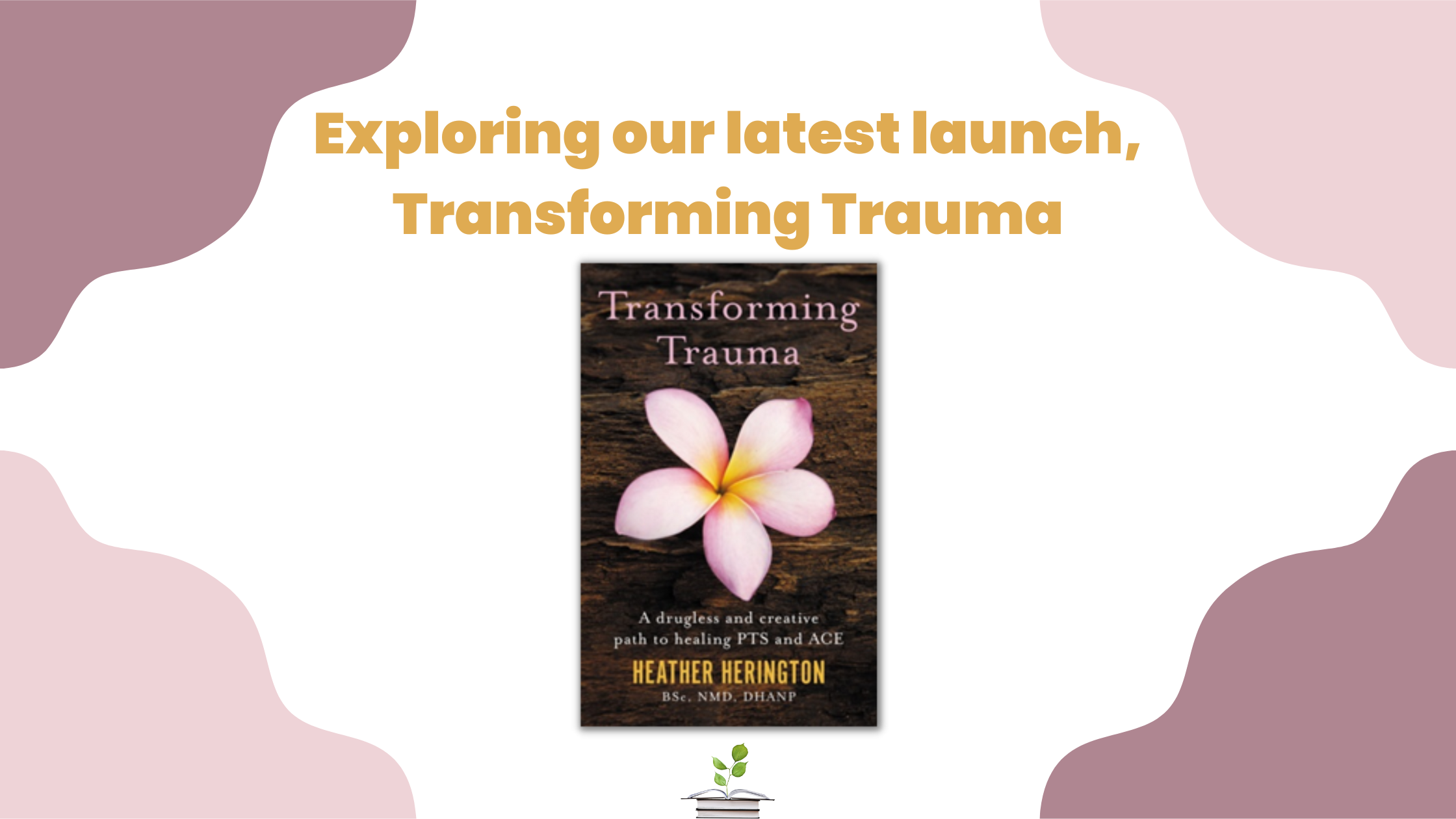
Blog written by Dr Heather Herington, author of ‘Transforming Trauma‘.
Honestly, I wish I had written this book years ago as, of late, the rate of trauma has increased dramatically, particularly within the vectors of teenage suicides, and human trafficking. These events join rape, war, resettlement, and so many other adverse experiences that can create chronic imbalance in our limbic system along with conscious thought processes governed by the brain’s pre-frontal cortex, sometimes leading to a lifetime of chronic anxiety.
However, I am comforted by the hope that now, following the failure of pharmaceutical companies and public health officials to manage Covid-19, more and more people will understand that drugs dispensed by the orthodox medical profession are not the categorical answer to the attainment of a healthy mental state. That ship has sailed. The opioid crisis alone has shown us that. Rather, we need to call on the full slate of natural health practitioners as well as psychologists to both balance body chemistry and provide an effective means of discovering the story hidden within, the one at the root of the traumatic event, which can lead to healing the lingering response.
Simply put, the little-known Flexner Report of 1910 (commissioned by Andrew Carnegie and John D Rockefeller, American oil barons who were eager to advance corporate interests in medical education) is to blame for the lack of knowledge of natural medicine, as my book explains. Yet nutrition, homeopathy, botanical medicine, hydrotherapy, guided visualization, and the expressive arts have so much to offer to heal a shaken mind or heart. In fact people in the 1800s with an array of doctors at their disposal ended up eschewing “heroic” medicine (bloodletting, calomel, mercury, purging) being practiced by the so-called “regulars,” the predecessors of today’s allopathic doctors, as they witnessed their loved ones dying and turned to natural medicine. Is this no different than what is happening today with drugs, lockdowns, and vaccine side effects? The one silver lining is that natural healing methods can now emerge from the shadows.
Canadian William Osler M.D. – renowned professor of medicine at Johns Hopkins and advocate of “medicine as art” as well as scientific inquiry – voiced his criticisms of Abraham Flexner’s report. I imagine he would voice his disdain at the mess we find ourselves in today.
I believe my two-pronged approach described in Transforming Trauma is an answer to what has gone wrong from the sterilization of medical practice by the Flexner Report. It is safe, it is effective and ultimately it is fun and full of self-discovery. Balance the biochemistry first – find out what is causing oxidative stress (i.e., inflammation) through the uniqueness of the individual (possible allergies, toxins, lifestyle choices) so that blood sugar, blood pressure, tendency to addictions, can be calmed and balanced. Once this is accomplished, or concurrently, we find a way in, to center through meditation and similar mind-body techniques, as we deepen self-discovery, using the imagination, and ultimately bringing in art, music, dance/movement, singing/vocalizing, and acting.
This book transports you beyond the limits of current mental health practice and a pill for every ill to a place where one can heal without the use of pharmaceuticals, ultimately releasing the tragedy at the root of the trauma. Click here to buy now or read the first chapter for free.

